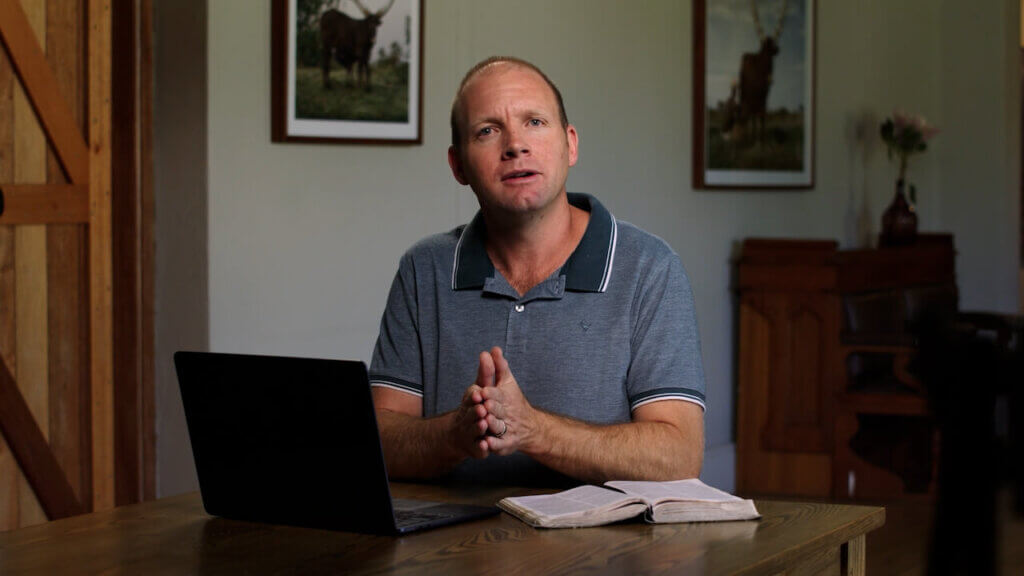Craig Roberts shares practical insights for church leaders on evaluating and enhancing their church’s impact. He discusses the core elements of church atmosphere, discipleship growth, and community service and prompts us to assess our church’s effectiveness in fulfilling the Great Commission. He talks about the importance of striking a balance between internal care and external outreach, urging churches to extend their reach beyond their walls.
Church
The next is to see how is our church doing in this area of the Great Commission as a priority for us? So, as a pastor, as a church leader, you can look in and see how is your church doing in this area? What are some things to celebrate? And we must always look at things to celebrate, because there always is.
What are some areas of improvement when it comes to seeing disciples made, to seeing the Great Commission made in our church context? Let’s get practical. If you were to do a little temperature gauge of your church, right now. What would it look like in terms of fulfilling the Great Commission? I have a few things that I do to help assess this.
One could be if you walk into your church, imagine that you are a visitor, not the pastor. If you were to walk in, and if you were to gauge the general atmosphere, the the excitement, the sense of people being family and wanting to be in that place, what would you gauge that out of ten? Would it be a nine, and your church is electric and it’s just growing and you’re so excited about it? Or would it maybe be a three out of four and you just don’t feel people have the excitement that they had before. What would that be? So that’s that’s a first out of ten, as it were.
Secondly, you could look at what is the growth in our church in terms of disciples being made. You can measure that in different ways, different indicators. It could be numerical growth, but not always. Sometimes people are attracted to an event and they’re not necessarily following Jesus, but they’re there for other reasons. Sometimes numerical growth does help that because if more disciples are being made, then, naturally, there is growth. It could be people being baptized. It could be people signing up to serve and wanting to start new ministries. You could do a gauge on of ten on that as well.
Finally, what’s the impact of your church in the community? If your and my church was to close down right now, would people even notice around where the church meets? Would there be a loss in the community? Would schools and businesses go, “What happened to those guys? They were doing such good in the community. They really impacted us and they no longer here.” Or would we just disappear and nobody else would notice? It’s another temperature gauge and you can kind of add those together. Divide that by three and get a gauge out of ten.
I’m not necessarily a numbers person, but it is good for us to look in at our churches and say, “Lord Jesus, how can we be growing in these areas together?”
Another helpful question to ask, and sometimes this is an awkward one, is, would I happily invite a friend of mine who isn’t a believer to my church on Sunday? And do I do that regularly as a pastor? And if I don’t do that regularly, why don’t I do that? What’s holding me back from doing it?
Now, there’s always going to be a level of awkwardness, inviting a friend of yours who doesn’t know Jesus to church. I do this, and I try and make a habit of this. I love doing it. It’s a special thing to have a friend next to you and sitting with you and being with your church who’s exploring faith, who it’s new to. But if you don’t do this regularly, what is it that’s holding you back from doing that?
There’s an awkwardness that the Holy Spirit brings because he’s challenging and he’s drawing people to Himself, but that’s a great awkwardness, and that should always be there. We never want church to not be awkward because it means we’re looking a little bit too similar to any other gathering that there could be.
So the Holy Spirit should challenge and he should instruct. But are there other reasons that you could easily change that actually are preventing you from inviting someone, and they shouldn’t be there? So, for example, I’ve had friends before saying, well, there’s just a lot of flowers at the front of my church, and I just know that some guys I know, and maybe they play rugby or they play golf or they’re some business guys, if they arrived at church and it was just full of color and, and floral pictures and big vases of flowers at the front of church, that would just put them off. Maybe you could assess that.
I’m not saying change the flowers. I’m not saying take them away, but maybe it’s something for you to think about. Or maybe it’s the type of music that you play, or the style of it. Maybe it is the people who do notices and how they do them. Maybe there’s areas of church life that just make you cringe. And I’m being honest and upfront here, because I want us to assess those things. You see, the message of the gospel should never, ever change, but the way in which we do church, that can always change. That’s always got opportunity to move and change.
Just as we moved from, some of you might remember those old school projectors, I think they were called overhead projectors, and they were the ones where you would write out the notes and you’d place them on top of this light that beamed up and then would shine on a wall. Then we moved to digital projectors. Now that’s not a problem. That’s just a mechanism changing, but the message and how we do it should never change. So I’d love you to ask yourself those questions.
Somebody called Paul Harvey said, “We need to be careful, because sometimes we’ve drifted away from being fishers of men, that’s fulfilling the Great Commission, to be in keepers of the aquarium. We’ve become so concerned about making sure everybody’s looked after and everybody’s cared for, and that’s important, it’s an important element of church life, but we’ve become so careful of doing that that we’ve forgotten to actually look outward. We’ve forgotten to be a place that’s welcoming and open to people where church is not normal for them. It’s such a strong challenge to keep the main thing, the main thing.
We want our churches to reflect Jesus. We don’t need titles. We just want to serve as Jesus did. We want to be asking the question, how can we be a church that helps disciples be made? How can we be a church that helps people explore faith and be welcome to explore faith, and then to grow in their walk with Jesus at church, and then to help other people do the same. Those are great questions for us to ask.
Community
And then finally, as I get to towards the end of the last one, that’s community. How do we serve our community, and beyond that, how do we serve our nation? I want us to be asking those big questions.
Maybe, just maybe, God wants you and your church to have a huge impact, not just in your city, but in the nation. He’ll start to give you ideas for that. There may be an immediate need right around you. Maybe there’s an immediate need right where your church is, where you can help. So, at the moment, as I’m speaking, there’s huge issues happening in, and conflict in and around Israel. Maybe if you were based there as a church, or you had a link with a church that’s operating there, there’d be an immediate need for you to get behind to serve and care for.
You could look around your church. I know around where ours are, there are schools, that potentially are struggling. There’s a rubbish dump not far away, and there are people who live on the dump. There are people on the street, and they’re trying to make ends meet. Maybe they’re begging. Maybe they’re selling on the side of the road. It’s good for us to ask those questions. Where can we serve the community? How can we demonstrate the love of Christ in our community?
One of the things that I love to do, and I take some people and church leaders through this, is we get out Google Maps and what we do is we, put our church in the middle of that and we then do different radius zooms. So the first one we might do is the immediate suburb. So, what we do is we print that out, try and get on a big page, an A3 or something if you can. We do the church in a small radius, and then we do the church in relation to the city. So, first neighborhood and then city, and then the church in relation to the country.
Then after that, we’ve printed it all out, and then we start step by step and we get around the table and we pray as a team. We just say, “Lord, would you highlight to us people, businesses in our community that we can serve, that we can love.” And it might be a supermarket. In the supermarket there’s different shops and we might pop in and say “How can we pray for you?” It might be a school close to us. It might be a gym, and we can chat to the owners of the gym and see how we can serve?
And so we ask those questions. How can we, as a church, be felt in the community and demonstrate the love of Christ and then when we move to the city, it might be more along the lines of partnerships, partnering with other churches, partnering with other organizations. Maybe there’s a huge need in the city and it’s beyond our little suburb, but actually we have the resources and the opportunity to help in that area.
Then finally, it might be the nation. Maybe in your church, there might be connections to politicians or connections to larger groups, or there’s a huge need in your nation, and through that, there’s an opportunity as a church to do that and to help with that. I love this from Pastor Morgan to Cholula in the midst of the Aids epidemic that was happening a while ago in Africa.
What he said was, “a church that lives within its own four walls is no church at all.” What he was saying in that is that for us to just be a church and to connect and care for people in the church, is not what God’s called us to, but actually he’s called us to live beyond the walls of our church. We want our church to be felt in the community that, as I shared earlier, if we were to close down, that the community would feel that there’s something missing.
I’m more passionate than ever about seeing the Great Commission fulfilled in the town where I am, Harare, and the nation where I am, Zimbabwe, than ever before. I pray that’s the case for you. I pray that as we’ve been through this webinar, that maybe, just maybe, God’s done something in your heart personally, that he’s done something and given you ideas for how you can personally grow in your passion for Him, grow in living out the Great Commission personally. And as you assess your churches you’re part of and your community, it’s my prayer that we would see the good news of Jesus advance like never before.
So I’d love us to to close in prayer and to really be expectant for God to take this further and more powerfully and more impactfully than ever before. So let’s pray together as we close.
Lord Jesus, thank you for this wonderful time we’ve had together. I want to pray for each church leader listening in this moment. Thank you that you care about people coming to faith, becoming disciples, helping other people to become follows of you more than we ever could. So I pray where we’re feeling dry and empty, as we prayed earlier, that you’d help us, that you would show us afresh the wonder of who you are and what you’ve called us to.
Now I pray for our churches. I pray that they would be churches that look like you, that demonstrate you, that are warm and welcoming, that are relevant, that are real, that are authentic. They are a place where people are exploring faith, can happily come and engage and explore faith together. We disciples can grow and be developed, and where leaders can be sent out.
I pray you would use us in our communities to show a radical love that’s never seen before. And why? So that many, many people can come to faith, can come to know you, be saved for all eternity.
So we want to commit this to you. Keep speaking to us. Help us as church leaders to keep the main thing, the main thing, to live out the Great Commission daily. In your powerful name we pray. Amen.




